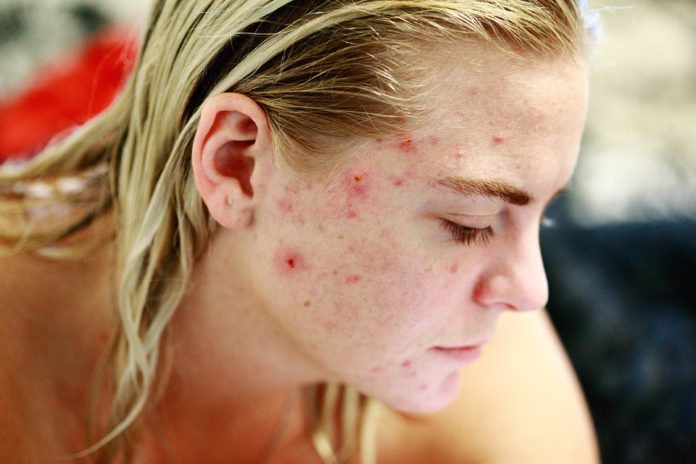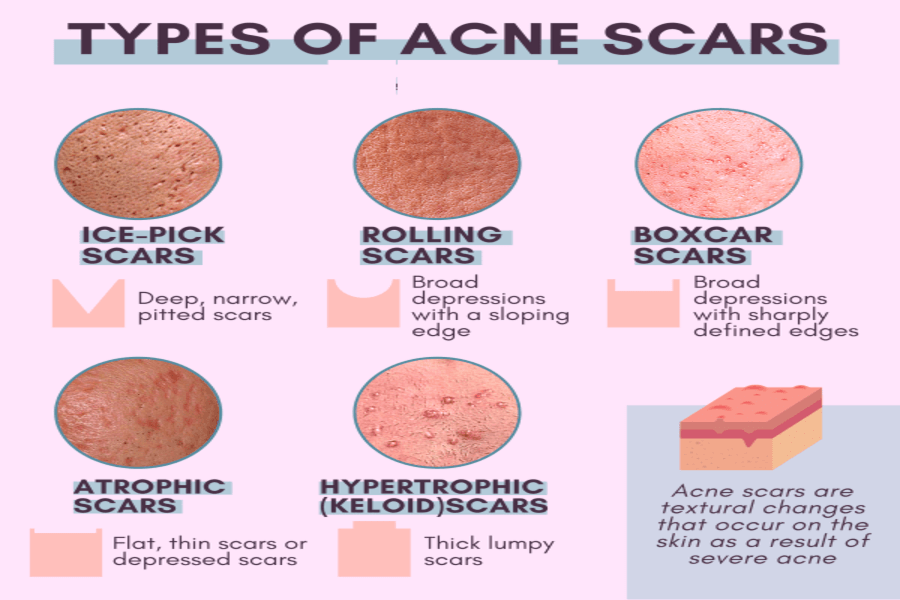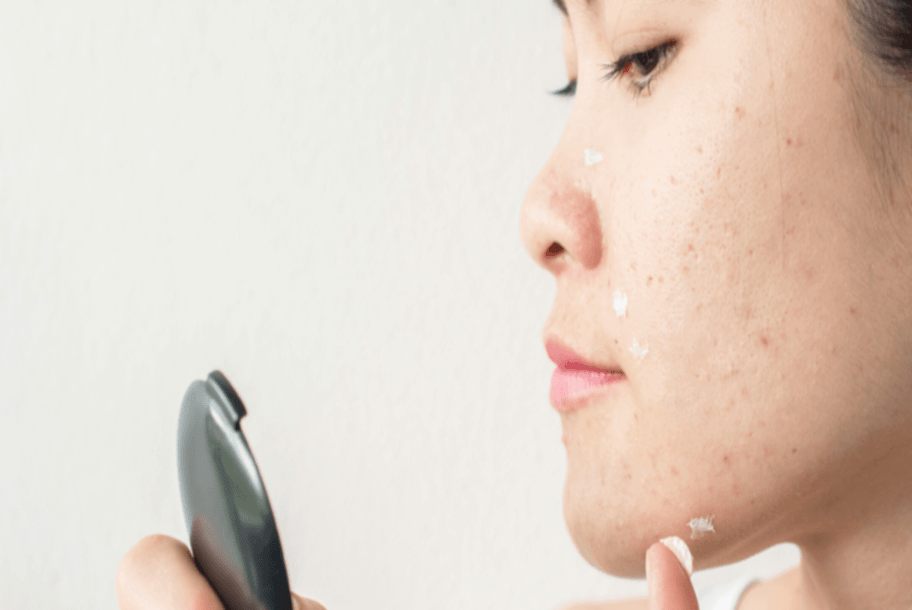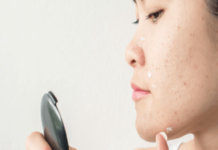What is Acne Scarring?
The scars from acne develop after breakouts caused by blockages of the skin pores. Blockages can cause swelling of the pores, causing damage to the follicle walls. This can create deep or shallow lesions that prominently look on the skin.
Why Do We Get Acne Scars?
Acne scars are caused by inflamed lesions. This type of lesion penetrates your skin and damages the tissue beneath it. This may transmit a mark or pit behind
Types of Acne Scars
Atrophic scarring is caused by tissue loss while hypertrophic scarring is caused by an excess of tissue. These are more segregated into ice pick scars, boxcar scars, and rotating scars.
1) Ice Pick Scars
Ice pick scars are the result of a sharp acne lesion. They are often caused by cysts that penetrate to the depths of the skin due to infection. Boxcar and rolling scars tend to be narrower, but they are deeper and more visible to the naked eye. Generally, these scars do not respond well to home remedies.
2) Boxcar Scars
Boxcar scars are more extensive than ice pick scars. It looks like small craters with sharp edges, giving the skin an uneven appearance. Their width can range from narrow to deep.
These conditions are caused by inflammatory breakouts that destroy collagen. There will be a loss of tissues, resulting in depressions in the skin.
3) Rolling Scars
Rolling scars are wide and have rounded edges, making the skin appear uneven and irregular.
They result from tissue growth between the skin and the subcutaneous tissues below. A rolling appearance is created by the bands pulling on the epidermis.
4) Hypertrophic Scars
These scars appear to be raised. These conditions are caused by excess tissue around the affected area.
How to get rid of acne scars
What you need to do to get rid of acne scars varies according to what type of scars you have and how severe they are. Acne should not be treated until it has completely healed.
Dermatological Treatments for Acne Scars Go Away
- The use of lasers, dermabrasions, microdermabrasion, and chemical peels can improve the appearance of acne scars that aren’t very deep. To stimulate the production of new cells, they all remove layers of skin.
- Fillers: Substances such as hyaluronic acid, collagen, or your fat may be used to fill in shallow scars. In general, results last a few months, although some fillers are permanent.
- Microneedling: Acne scars can be treated with this technique, also known as collagen induction therapy. Using a thin roller stimulates collagen production in scarred areas by pressing into them.
- Radiofrequency skin tightening: This method can sometimes be sufficient for deep icepick and boxcar scars. Using radiofrequency, a doctor can tighten skin and minimize the appearance of acne scars.
- Electrodesiccation: A combination of electrical probes and heat is used in electrodesiccation for boxcar acne scars to help even out a scar’s edges.
- Injections: such as corticosteroids can soften and flatten raised scars when repeatedly injected into the skin.
- Surgery: Surgery involves removing and supporting tissue for the appearance of discouraged acne scars. People with darker skin shouldn’t undergo cryosurgery to remove acne scarring because the procedure freezes the skin.
Home Remedies to Make Acne Scars Go Away
1) Coconut Oil
Coconut oil keeps your skin moisturized. It prevents the skin from producing excess serum, which helps to reduce the risk of acne scars.
Coconut oil should not be applied directly to the skin with a very oily texture. Pores may become clogged, making the problem worse. (Best Essential Oil to Fade Dark Spot on Skin)
2) Shea Butter
In addition to anti-inflammatory properties, shea butter inhibits bacteria responsible for acne. Discolorations and acne marks are also reduced with this treatment.
3) Turmeric Powder
Curcumin has anti-inflammatory properties that can help fight acne and prevent scarring.
4) Lemon and Honey
Using honey and lemon together for your skin is a great idea. Lemon contains antibacterial properties and is acidic. It will reduce excess oil on your skin and help fight bacteria.
You should conduct a patch test before applying lemon to your face due to its acidic properties.
In addition to treating skin conditions and reducing scars faster, honey also contributes to your body’s healing process. In addition to preventing more sebum from being produced, it also helps you moisturize naturally.
5) Baking Soda
A baking soda-based remedy for acne and scars can help reduce inflammation. Nevertheless, experts recommend against using baking soda on the skin. It is said to absorb essential oils, which may cause the skin to overproduce sebum.
6) Aloe Vera
Aloe vera regulates the production of melanin. By using this, pigmentation and discoloration are reduced.
7) Essential Oils
Essential oils have wound healing properties that prevent the formation of scar tissue. You will also experience a decrease in inflammation, redness, and a smoother texture of your skin.
8) Apple Cider Vinegar
The acidic nature of apple cider vinegar helps remove the top layer of skin, reducing the appearance of scars.
How Can You Prevent Acne Scars?
Preventative measures are always preferable to cure. Understanding your skin and taking the proper precautions are therefore crucial. To avoid acne and scarring, follow these skin care tips.
Dos and Don’ts:
1) Avoid The Sun
Although adventure can be fun, it shouldn’t cost your health. Overexposure to the sun can cause your body to dehydrate.
It will over-produce oil, which can cause blocked pores. If you must spend time outdoors frequently, stay hydrated.
2) Don’t Pop Your Pimples
Pimples can be aggravated by popping them, which can result in scars as well as an acne breakout.
Touch your face sparingly, as your hands can carry bacteria that can clog your pores.
3) Follow a Skin Care Routine
You should maintain a skincare regimen. Be sure to wash off your makeup and wash your face before fast asleep. Maintain healthy skin by cleansing, toning, and moisturizing regularly. Stay hydrated.
4) Don’t Scrub Too Hard
It’s not necessary to exfoliate your face daily. These conditions cause redness, itching, and inflammation of the skin, which might lead to breakouts.
5) Stay Hydrated
Acne and scarring are often prevented by drinking a lot of water. Make sure to stay hydrated to prevent your body from overproducing oil (which can sometimes lead to clogged pores). There is a good reason why it is said: water cures all ills.
Are Acne Marks Permanent?
There is a common misconception that scarring and marking are the same. A person’s face may have brown or red patches left behind by acne that fade away with time. A pit or crater, however, is a permanent mark.
Post-inflammatory hyperpigmentation is a discolored patch that appears as a flat surface after acne. In PIH, excessive melanin develops in the skin as it heals, darkening the patch. The follicle, however, is not affected, and the patch fades over time, usually after about 24 months.
Although scars may fade slightly over time, they are permanent. In addition to medical treatment, there are several home remedies available to get rid of them.






